Rafail Psiakis
Unleashing OpenTitan's Potential: a Silicon-Ready Embedded Secure Element for Root of Trust and Cryptographic Offloading
Jun 17, 2024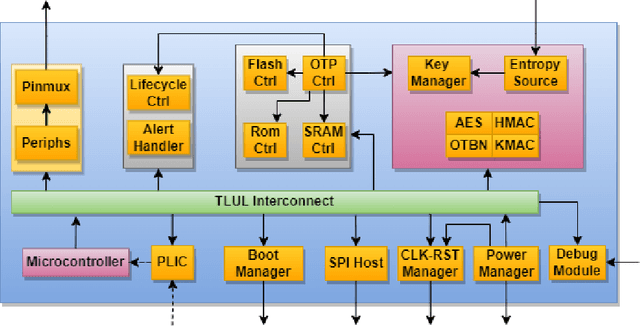

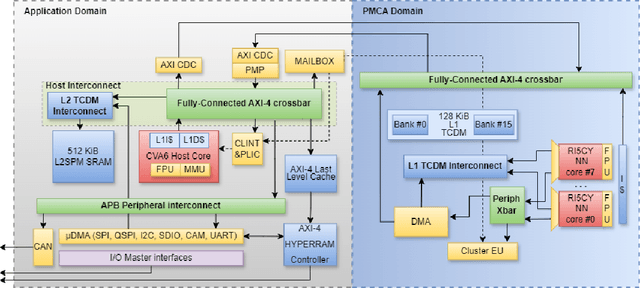
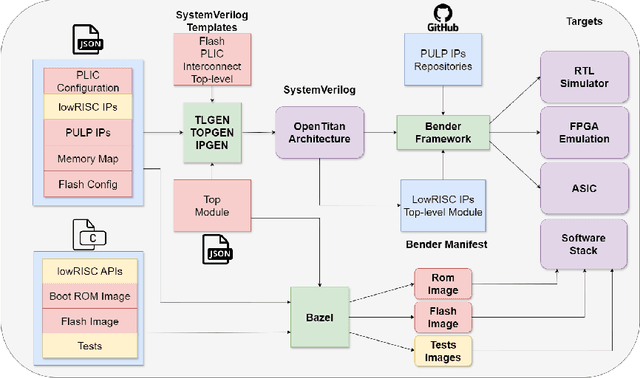
Abstract:The rapid advancement and exploration of open-hardware RISC-V platforms are driving significant changes in sectors like autonomous vehicles, smart-city infrastructure, and medical devices. OpenTitan stands out as a groundbreaking open-source RISC-V design with a comprehensive security toolkit as a standalone system-on-chip (SoC). OpenTitan includes Earl Grey, a fully implemented and silicon-proven SoC, and Darjeeling, announced but not yet fully implemented. Earl Grey targets standalone SoC implementations, while Darjeeling is for integrable implementations. The literature lacks a silicon-ready embedded implementation of an open-source Root of Trust, despite lowRISC's efforts on Darjeeling. We address the limitations of existing implementations by optimizing data transfer latency between memory and cryptographic accelerators to prevent under-utilization and ensure efficient task acceleration. Our contributions include a comprehensive methodology for integrating custom extensions and IPs into the Earl Grey architecture, architectural enhancements for system-level integration, support for varied boot modes, and improved data movement across the platform. These advancements facilitate deploying OpenTitan in broader SoCs, even without specific technology-dependent IPs, providing a deployment-ready research vehicle for the community. We integrated the extended Earl Grey architecture into a reference architecture in a 22nm FDX technology node, benchmarking the enhanced architecture's performance. The results show significant improvements in cryptographic processing speed, achieving up to 2.7x speedup for SHA-256/HMAC and 1.6x for AES accelerators compared to the baseline Earl Grey architecture.
A Heterogeneous RISC-V based SoC for Secure Nano-UAV Navigation
Jan 07, 2024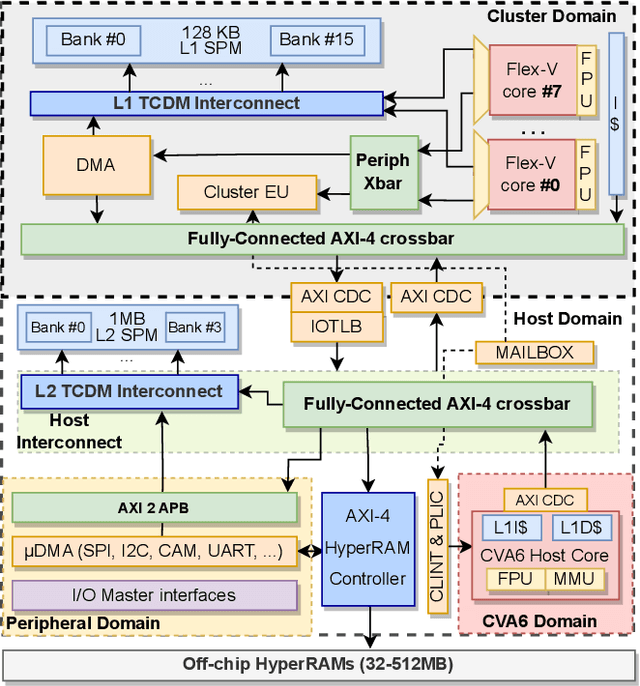
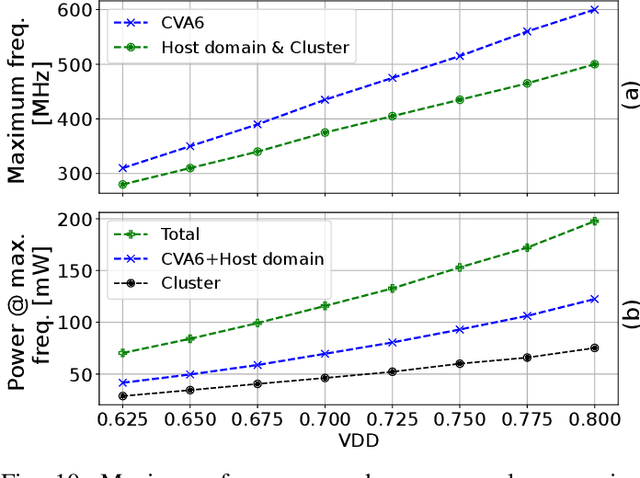
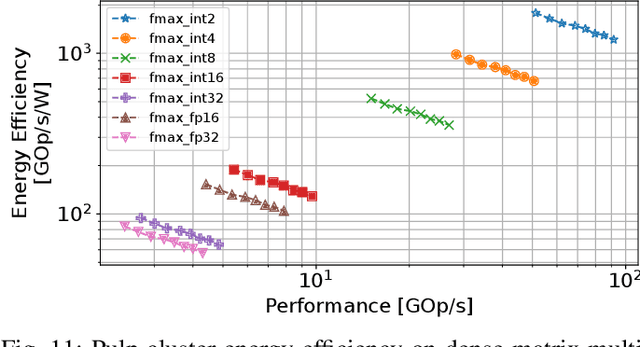
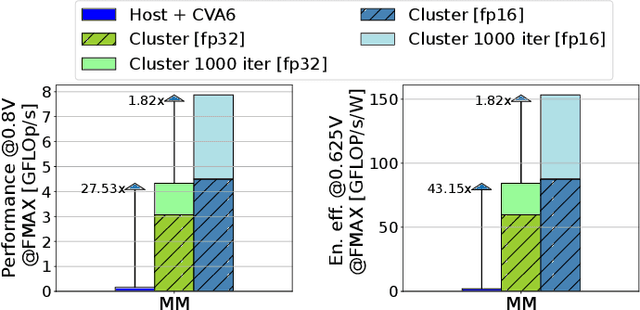
Abstract:The rapid advancement of energy-efficient parallel ultra-low-power (ULP) ucontrollers units (MCUs) is enabling the development of autonomous nano-sized unmanned aerial vehicles (nano-UAVs). These sub-10cm drones represent the next generation of unobtrusive robotic helpers and ubiquitous smart sensors. However, nano-UAVs face significant power and payload constraints while requiring advanced computing capabilities akin to standard drones, including real-time Machine Learning (ML) performance and the safe co-existence of general-purpose and real-time OSs. Although some advanced parallel ULP MCUs offer the necessary ML computing capabilities within the prescribed power limits, they rely on small main memories (<1MB) and ucontroller-class CPUs with no virtualization or security features, and hence only support simple bare-metal runtimes. In this work, we present Shaheen, a 9mm2 200mW SoC implemented in 22nm FDX technology. Differently from state-of-the-art MCUs, Shaheen integrates a Linux-capable RV64 core, compliant with the v1.0 ratified Hypervisor extension and equipped with timing channel protection, along with a low-cost and low-power memory controller exposing up to 512MB of off-chip low-cost low-power HyperRAM directly to the CPU. At the same time, it integrates a fully programmable energy- and area-efficient multi-core cluster of RV32 cores optimized for general-purpose DSP as well as reduced- and mixed-precision ML. To the best of the authors' knowledge, it is the first silicon prototype of a ULP SoC coupling the RV64 and RV32 cores in a heterogeneous host+accelerator architecture fully based on the RISC-V ISA. We demonstrate the capabilities of the proposed SoC on a wide range of benchmarks relevant to nano-UAV applications. The cluster can deliver up to 90GOp/s and up to 1.8TOp/s/W on 2-bit integer kernels and up to 7.9GFLOp/s and up to 150GFLOp/s/W on 16-bit FP kernels.
 Add to Chrome
Add to Chrome Add to Firefox
Add to Firefox Add to Edge
Add to Edge